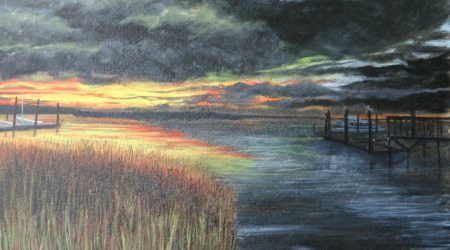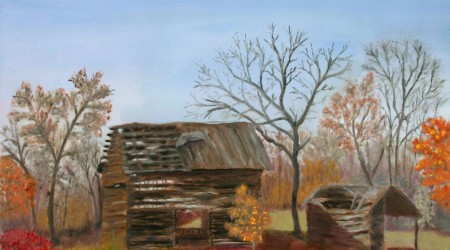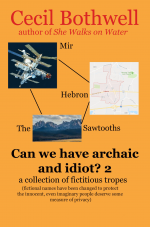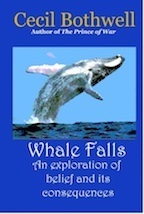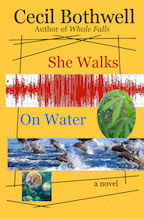Currently doing a series of sunsets I have seen over the years, across the continent. The date in the title is the last time I saw the scene, the date following is the date I did the painting.
The same river twice
The French Broad River may be the oldest on the planet. It predates the mountains here, which rose up as the river continued to carve its way down. Like any such watercourse the level changes constantly, but thanks to the mountainous terrain in the drainage area the flow can change dramatically in a very short… Continue reading The same river twice
Barns in decline
Barns are going away, here and around the country. Since the advent of hay rollers, farmers don’t keep bales stashed in a loft any longer. They pile the rolls and cover them with plastic tarps, or simply leave them exposed to the weather. (Outer layers are spoiled by rain, but the inner hay remains okay.)… Continue reading Barns in decline
Can we have archaic and idiot? 2
A quirky collection of short stories written between 1999 and 2009. Meet a research assistant with a glass eye and a fellow with two left feet, a group of corporate lawyers stranded in the Canadian wilderness, a math teacher challenged to a glacial duel, a postal worker with a wicked golf swing, a man who… Continue reading Can we have archaic and idiot? 2
Chickens, chickens, chickens
People love chickens. Sometimes they don’t like roosters who crow too early. But there seems to be an innate love of chickens in everyone I meet. And it’s not just culinary. Chicks in particular seem to draw attention. Fun fact: there are more chickens than human beings on planet earth just now. How do you… Continue reading Chickens, chickens, chickens
Other Paintings
Naturally enough I’m not limited to rivers, barns and chickens. Here’s a Green Heron perched on a flood control dam in Black Point wildlife refuge in Florida; After Darwin, a still life (sold in a charity auction), Spring Thaw (sold in a charity auction) and Young Yellow Crowned Night Heron. Here’s my only attempt at a… Continue reading Other Paintings
Usin’ the Juice
My tenth book – this one a collection of speeches and sermons delivered across the U.S. between 2010 and 2015. When I ran for Asheville City Council in 2009 a group of political opponents decided to tar me with accusations of atheism. No stranger has ever done me a bigger favor. With a little help… Continue reading Usin’ the Juice
Whale Falls
Whale Falls is an examination of how our beliefs shape our lives and a memoir of a difficult relationship, lessons learned and, finally, forgiveness. A whale fall is the carcass of a dead whale sunk to the deepest depths of the ocean. They were only discovered in 1987 by a crew aboard the submersible Alvin.… Continue reading Whale Falls
The Prince of War
In 2007 I published what was and is the only critical political biography of Rev. Billy Graham. Most of the books about Graham are the product of the Graham ministries, and all of the others focus on the putative “good” he has done in the world while glossing his political influence. Five years of research… Continue reading The Prince of War
An earthquake in Haiti
She Walks on Water: A novel, Brave Ulysses Books, 2013 A young woman in Haiti, a young man in Japan, a strange connection across species, across the ocean, around the world. It all began with an earthquake. A story of immeasurable loss and profound love, the puzzle of linguistics, the testing of faith, and the lyrical… Continue reading An earthquake in Haiti
